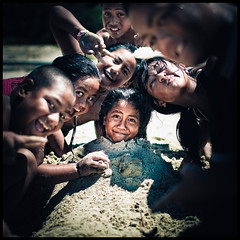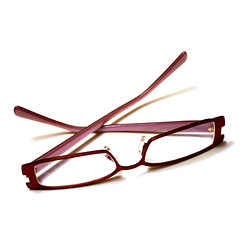Position yourself as a learner
One of the first things to do when re-thinking assessment is to to position yourself as a learner, and Nadell suggested asking yourself the following questions:- What things do I love doing when I am a learner?
- What inspires me?
- What am I passionate about in terms of Māori Education?
- What spins my wheels in the learning that I do?
- What style of learning do I enjoy and what keeps me focussed when I’m in a learning environment?
Traditional views of assessment
Traditional views of assessment, Nadell explained, "see classrooms full of tamariki (children), all in one space having to sit and listen. The teacher delivers a concept or problem for them to engage with. If this is how our tamariki are learning, what are we expecting when we assess them? The emphasis in this environment is placed on the grade rather than what students have been asked to learn". In a re-framed view, rather than assessment driving the learning, the learning drives the assessment. Nadell mentioned that "schools do need to know what the learning outcomes are learners. Accordingly, at times school-wide data should be collected and analysed. Schools do this to modify their policies, teaching programmes and teaching activities in order to improve learning outcomes".
In a re-framed view, rather than assessment driving the learning, the learning drives the assessment. Nadell mentioned that "schools do need to know what the learning outcomes are learners. Accordingly, at times school-wide data should be collected and analysed. Schools do this to modify their policies, teaching programmes and teaching activities in order to improve learning outcomes".Nadell went on to speak about Te Marautanga o Aotearoa (the Māori equivalent of the NCEA), which embraces strategies that are most efficacious for Māori learners, and Māori achieving success as Māori.
Assessing for success: Strengths-based assessment
How can we assess for success? We should be looking at strengths-based success. The ideology of NCEA is to measure skills and competencies and how well they do those things...this is a strengths-based approach. The intention of NCEA is based on the premise that NCEA was not designed for students to fail. Assessment is not designed for students to fail - but test what knowledge they have learned. These are things that the kids are good at AND how well they do these things. NZQA has produced two strategies, ‘Te Rautaki Māori a te mana mātauranga o NZ and the Pasifika Strategy.
Success as an acronym can be viewed as:
- S = scaffold
- U = Unite
- C = Co-create (something great)
- C = Capture (the rapture. Not sticking to the curriculum and making the most of the learning)
- E = Elevate (to perpetuate. The students are constantly on a high and experiencing levels of success)
- S = Strive to thrive (developing a high level of resilience)
- S = Support (what is taught).

Some examples
Nadell talked about the Year 2 and 3 tamariki from Te Arawaru, a Central Normal School learning about ‘patterns’ to make kete. She asked "what things do our tamariki Māori love learning about? What types of activities engage our tamariki to learn and to also work collaboratively together? What spins their wheels? ‘Mā te tuakana, ka tōtika te teina, mā te teina ka tōtika te tuakana’". Every day the tamariki meet together for a karakia, and the tamariki lead the karakia. The "whole team...whānau...start each day off together and end the week together sharing and learning while developing oral language". Waiata and haka are also shared at this time "it's a time for our tamariki to be confident" and it's "a time for the audience to ask questions". When scaffolded and supported "our tamariki are able to lead their learning".
 The Gagana Samoa Speech Competition offers students opportunities for NCEA Levels 1, 2, and 3 Gagana Samoa students to participate in the ASB Polyfest. Manu explained that having students speak about their language and culture in an environment that they are comfortable is essential. There also need to be opportunities to access NCEA frameworks in different subject areas that lean towards valuing Pasifika heritages, languages and cultures. One way of extending this is working with other subject teachers in other curriculum and learning areas to see how Pasifika learners can engage in standards that work for them – not the other way around. "Strengths-based approaches are key, because this prepares students for the career pathways of their choice – we work towards what we are passionate about and good at!!" "The ability to gain credits through performances enables students to experience success, and this often transfers to other learning areas".
The Gagana Samoa Speech Competition offers students opportunities for NCEA Levels 1, 2, and 3 Gagana Samoa students to participate in the ASB Polyfest. Manu explained that having students speak about their language and culture in an environment that they are comfortable is essential. There also need to be opportunities to access NCEA frameworks in different subject areas that lean towards valuing Pasifika heritages, languages and cultures. One way of extending this is working with other subject teachers in other curriculum and learning areas to see how Pasifika learners can engage in standards that work for them – not the other way around. "Strengths-based approaches are key, because this prepares students for the career pathways of their choice – we work towards what we are passionate about and good at!!" "The ability to gain credits through performances enables students to experience success, and this often transfers to other learning areas".Questions you may also be asking...
One of the first questions to be asked was by Viola who wrote "How do you see success in perhaps the Arts transitioning into other curriculum areas?" Manu responded that once students had experienced success, it definitely increased student confidence and transitioned into other subject areas (as Janine said "success breeds success").
 Another great question was from Gaylene who asked "How can we at schools involve whānau more effectively in assessments?" Nadell responded that much of it is about building relationships - rather than the only contact being the phone call saying that their son or daughter isn't listening in class. One example, Nadell gave was of a school that opened up their computers one evening and whānau came in to do work alongside their tamariki. The first thing therefore is to create an environment where families feel safe and comfortable. Manu added that you could also ask whānau for "content for assessments and context that could be used".
Another great question was from Gaylene who asked "How can we at schools involve whānau more effectively in assessments?" Nadell responded that much of it is about building relationships - rather than the only contact being the phone call saying that their son or daughter isn't listening in class. One example, Nadell gave was of a school that opened up their computers one evening and whānau came in to do work alongside their tamariki. The first thing therefore is to create an environment where families feel safe and comfortable. Manu added that you could also ask whānau for "content for assessments and context that could be used".
Heather asked a question around stereotyping "the tone of it was a lot of deficit thinking". "How do you empower students to be assessed orally in a way that supports literacy development?". Manu responded that oral assessment can be used to test reading and writing skills, but "this is from a deficit model". "I would look to extend this further and encourage students to transition the oral to the writing...to listen to recordings of themselves. It's also important to know that students need more time". "It's also important to engage the student around what they are interested in and to base assessment on those interests".
The final question to be posed was: "There is a comfort level for schools (perhaps) to offer a one size fits all assessment and standardised assessment. At what level(s) do you feel that thinking around how we design and facilitate assessment need to be?" Manu spoke about research she has conducted, which has enabled her to offer advice and guidance to schools about how to best enable students to succeed. When designing a programme of learning that, rather than looking at a package per year, rather all the standards need to be inter-linked, with ample opportunity to connect with the material. And having these links helps students to connect with this a lot stronger.
So how are your assessment 'lenses' now?
Manu closed by asking:
- So how do you now view assessment for Māori and Pasifika learners?
- Was it a tiny adjustment to make? Have the shape of your lenses totally bent out of shape?
- Does it inspire you to consider improving your views about how to make assessment more responsive to the needs of Māori and Pasifika learners? Making it more high-tech?
- How are your lenses?
Missed today's session or want to participate again?
If you missed today's session, you can access the recording of session, and also you can access the slides below.
Images
- Pasifika Patterns. CC (SA NC) licensed Flickr image by teachernz: https://www.flickr.com/photos/teachernz/3191268792/
- Hawaiian Village. CC (BY) licensed Flickr image by US Embassy New Zealand: https://www.flickr.com/photos/us_embassy_newzealand/13023933753/
- Maori Kids. CC (SA NC) licensed Flickr image by dicimijo: https://www.flickr.com/photos/dicimijo/441417770/
- Locals. CC (BY NC) licensed Flickr image by AMERICANVIRUS: https://www.flickr.com/photos/americanvirus/4418566004/
- Life through a lens. CC (BY NC SA) licensed Flickr image by Caro Wallis: https://www.flickr.com/photos/carowallis1/4274112043/
- Pasifika achievement and e-learning. CC (BY NC SA) licensed Flickr image by Karen Melhuish Spencer: https://www.flickr.com/photos/karenmelhuish/8668105348/






